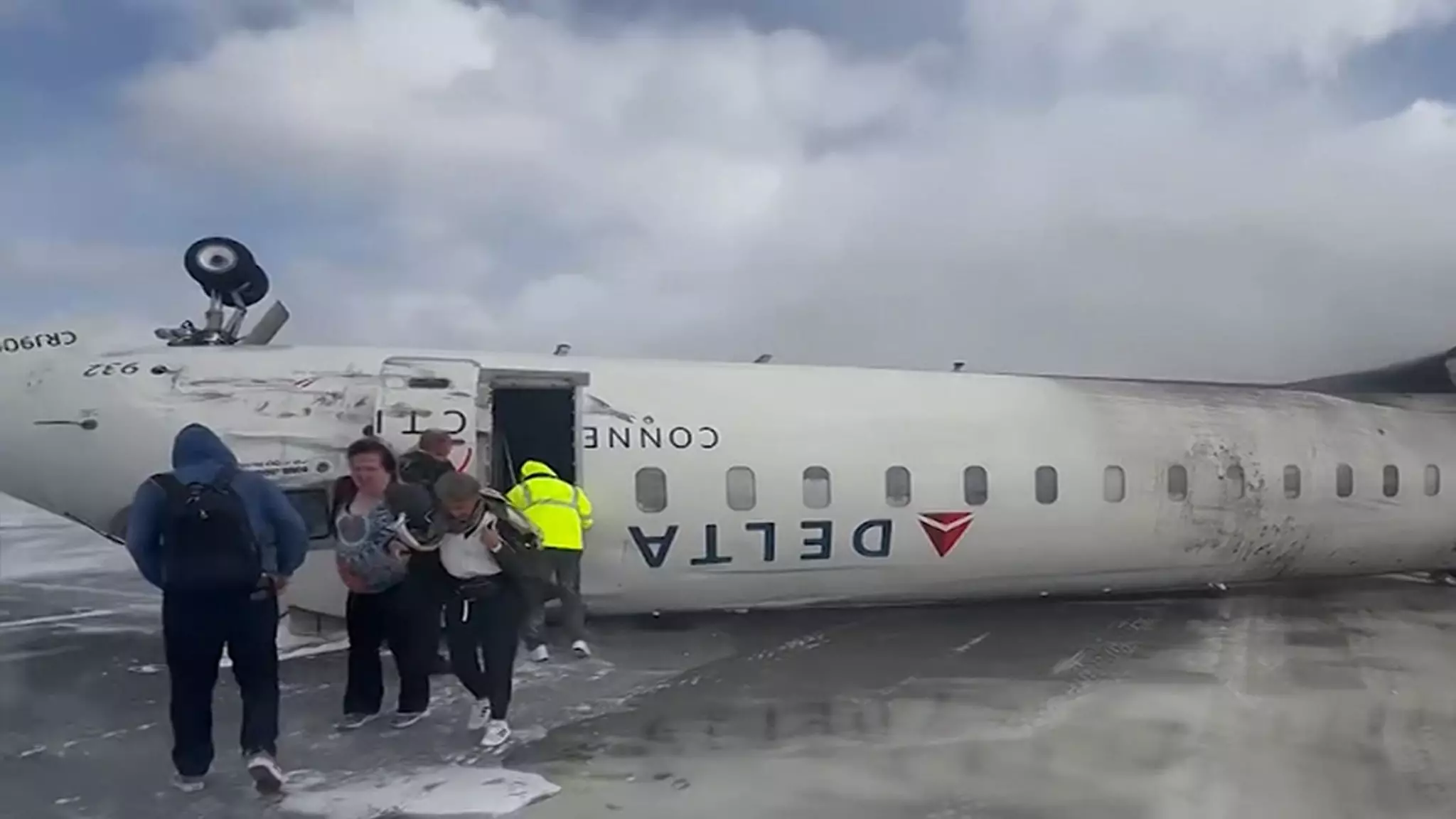In an alarming event at Toronto Pearson International Airport, a Delta Air Lines flight encountered a severe mishap during its landing process. The aircraft, which had originated from Minneapolis, surprisingly flipped upside down upon touchdown on a snowy runway. Visuals captured at the scene reveal a disturbing sight: a fuselage precariously positioned on its back, surrounded by emergency crews who quickly arrived to assess the situation. Smoke was seen rising from the aircraft as it appeared to display significant damage, including the loss of wings and a broken tail.
Initial investigations suggest that the inclement weather played a crucial role in this distressing occurrence. Just days prior, a considerable snowfall of over eight inches covered the Toronto airport, adding layers of complexity to the landing process. It raises critical questions about the preparedness of airports and airlines for such weather-related challenges, particularly concerning runway safety and aircraft stability during adverse conditions. Such elements not only heighten the risk during aircraft operations but also underscore the essential need for robust contingency measures and effective de-icing protocols in winter.
A ray of hope emerged amidst the chaos when the airport confirmed that all passengers and crew onboard were accounted for. Delta Air Lines indicated that the flight carried 80 individuals—76 passengers and 4 crew members. Accounts from passengers reveal sheer shock, intertwined with gratitude for surviving the ordeal. Photographs taken post-incident show passengers exiting through the overturned cabin door, a surreal context considering the drastic nature of the situation. Social media exploded with reactions, as individuals shared their disbelief at escaping what could have been a catastrophic failure.
Delta Air Lines issued a statement acknowledging the incident and confirming that they were gathering further information. As news spread, concern over the safety of air travel surged in the midst of recent reports of several aviation accidents. Delta later clarified that while there were no fatalities in this incident, medical assistance was necessary for “several customers” who sustained injuries, emphasizing the importance of swift emergency medical response in aviation crises.
The Delta incident serves as a stark reminder of the unpredictable nature of air travel, particularly under adverse weather conditions. While incidents like this raise questions about specific protocols and regulations, they accentuate the resilience of passenger aircraft and the efficacy of emergency response teams. Moving forward, the incident prompts a necessary dialogue involving airlines, regulatory authorities, and airport management on improving safety measures during challenging conditions.
As we reflect on this incident, it becomes imperative to enhance our understanding of aviation safety and emergency preparedness. The collective response exhibited—from the airline to the emergency services—showcases the significance of preparedness in mitigating risks and ensuring the safety of passengers in one of the most stringent environments, the skies.

